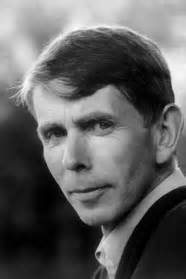A Quote by Masiela Lusha
I felt it's vague enough for the reader to pull their own story and their wisdom out of the poem, but for me, it's actually very painfully transparent what I've written. Sometimes very literal, which is scary.
Related Quotes
I want each poem to be ambiguous enough that its meaning can shift, depending on the reader's own frame of reference, and depending on the reader's mood. That's why negative capability matters; if the poet stops short of fully controlling each poem's meaning, the reader can make the poem his or her own.
I hope any poem I've ever written could stand on its own and not need to be a part of biography, critical theory or cultural studies. I don't want to give a poetry reading and have to provide the story behind the poem in order for it to make sense to an audience. I certainly don't want the poem to require a critical intermediary - a "spokescritic." I want my poems to be independently meaningful moments of power for a good reader. And that's the expectation I initially bring to other poets' writing.
The poem is not, as someone put it, deflective of entry. But the real question is, 'What happens to the reader once he or she gets inside the poem?' That's the real question for me, is getting the reader into the poem and then taking the reader somewhere, because I think of poetry as a kind of form of travel writing.
'Ghost City' was actually one of the few instances of non-fiction that I had written, and I felt that I probably said what I wanted. I think it must be different for every author; I haven't done very much of it, and perhaps, in a way, I found it rather painful, which is why I don't really do it very often.
I find myself absolutely fulfilled when I have written a poem, when I'm writing one. Having written one, then you fall away very rapidly from having been a poet to becoming a sort of poet in rest, which isn't the same thing at all. But I think the actual experience of writing a poem is a magnificent one.
The subject of the poem usually dictates the rhythm or the rhyme and its form. Sometimes, when you finish the poem and you think the poem is finished, the poem says, "You're not finished with me yet," and you have to go back and revise, and you may have another poem altogether. It has its own life to live.
There are three big things going for The Scorpio Races: first, it is set on a beautiful but wild island in the middle of the cold Atlantic Ocean. That would've seduced me as a teen reader. Second, It is full of beautiful but killer horses being trained for a dangerous race. Actually, that would've seduced me as a teen reader as well. At third it involves a very repressed love story with a very Mr. Darcy-like love interest.



































